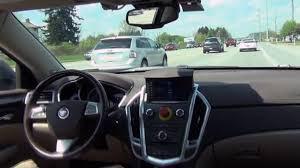Recently I responded to an essay suggesting that technological progress is juddering to a halt. Its author pointed to airplanes, hardly changed in decades.

Driving safely on a busy street is actually a fiendishly complex challenge. But computers, with a form of artificial intelligence, can now master it. Better than you or me – far better. Google’s experimental self-driving cars have logged 1.8 million miles, with only a few minor accidents (not their fault) and no injuries.

The Economist recently peered into the driverless future, and it’s a dramatic picture. Start with the fact that currently we all own our own cars, one of our biggest investments, yet on average they sit idle 96% of the time. That will look increasingly senseless (at least in urban areas) as Uber-type ride-summoning services become more ubiquitous, convenient, and cheap – because the biggest cost factor – driver compensation – will evaporate (along with a lot of driver jobs).
So car ownership will plummet. And as that 96% idleness rate goes way down, so will the number of cars society needs. The Economist estimated there’ll be up to 90% fewer around. (Look out, GM and Ford.) The eternal problem of parking will vanish, and indeed, a lot of the acreage devoted today to parking will be freed up for other functions.

Hence less road construction costs. Also, no more car insurance. No more tickets, so cops can do other things, like actually fighting crime. Children, the blind, the frail, could all ride. And today’s zillion hours spent behind the wheel can be devoted (safely!) to other activities too. Another study calculates America’s resulting productivity gain at over $1 trillion annually.
Easier and faster commutes can enable cities to spread out more (suck it up, James Howard Kunstler*). And The Economist didn’t even mention that significantly fewer cars utilized more efficiently should substantially cut fuel consumption and pollution, with an obvious panoply of benefits (suck it up more, Kunstler**).

In history’s long view, today’s widespread private car ownership (and often fetishization) will be seen as a brief and somewhat strange transitional interlude, between use of horses, and driverless vehicles.

** He also has foreseen no technological remedy for our supposed “oil addiction.”
